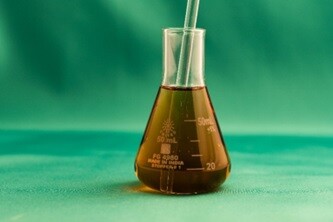Effects of microorganisms in humic substances on soil and plants.

A growing collection of research has been conducted on the interactions between humic substances and microorganisms. The importance of a healthy soil microbe population is well-known, but there are many factors that can impact the soil and plant bacterial community. Humic substances can play a positive role in this biological community in a variety of ways. It has been shown that many species of soil bacteria are still capable of growing when their only source of carbon is humic acid1. In that same experiment, the researchers discovered that humic acids stimulated the growth of bacteria when bacteria were only provided glucose as a growth medium1. A similar response has been shown regarding toxin-degrading organisms. When humic acid was applied to microbes degrading a toxic environmental contaminant, it increased the enzyme activity of the microbes, which resulted in accelerated microbial remediation2.
Since we know that humic acid has a positive effect on microbial communities, it is not surprising that it also contains a large community of beneficial microorganisms on its own. If these microorganisms are provided the right conditions to survive and grow in a humic acid product, the biological effects could be multiplied. Our liquid humic acid and fulvic acid products contain large numbers of plant growth-promoting bacteria.
To read the complete article, click here.
Prepared by Tannis Serben, Quality Control Laboratory Technician at Global Humic Products.
